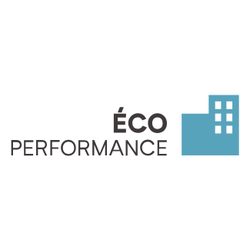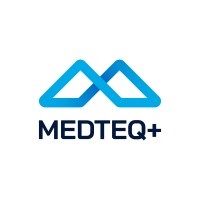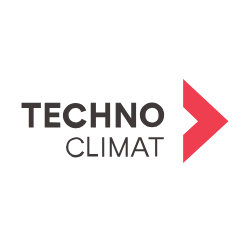
NRC — Cell Culture Pilot Plant
At a glance
- No Condition
- Open Date : November 14, 2019
- Manufacturing
- Professional, scientific and technical services
- Health care and social assistance
- Quebec
- For-profit business
- All revenue ranges
- All organization sizes
- Startups
Overview
Fee-for-service cell culture pilot plant offering development and scale-up for the production of biologics and vaccines using CHO, HEK 293 and other animal cell expression systems.
Activities funded
This grant facilitates the development and optimization of bioprocesses for biologics and vaccines, focusing on leveraging advanced cell culture systems. Eligible projects aim to enhance scale-up, purification, and production capabilities.
- Development and scale-up of batch, fed-batch, or perfusion cell culture processes up to 500 L scale for biologics production.
- Scale-up of viral production and purification processes.
- Scale-up of transient transfection processes.
- Development of cell culture media and feeding strategies for process optimization.
- In-process assay development to ensure robust production outcomes.
- Customized, hands-on training on bioreactor operation up to 500 L scale for technology transfer and workforce development.
Eligibility
Eligibility criteria:
- Canadian biotechnology companies
- Businesses involved in pilot-scale production and purification of biologics, viral vectors, and vaccines
Who is eligible?
This program is ideal for biotechnology companies involved in the pilot-scale production and purification of recombinant proteins, viral vectors, and vaccines. It is particularly suited for those aiming to optimize cGMP-compatible bioprocesses and work towards a robust Canadian biomanufacturing sector. The program supports the scale-up process using advanced bioprocessing services and equipment.Eligible expenses
The grant supports projects focused on advancing bioprocessing services and equipment for the production of biologics and vaccines. It emphasizes process development and scale-up for various cell culture systems and optimization strategies.
- Development and scale-up of batch, fed-batch, or perfusion cell culture processes up to 500 L scale for biologics production.
- Scale-up of viral production and purification processes.
- Scale-up of transient transfection processes.
- Development of cell culture media and feeding strategies for process optimization.
- In-process assay development.
- Customized, hands-on training on bioreactor operation up to 500 L scale.
Eligible geographic areas
This grant is aimed at fostering the Canadian biomanufacturing sector, suggesting a focus on companies within Canada. The explicit geographical eligibility details are not provided in the available text.
Selection criteria
Grant applications will be assessed based on key criteria including scientific excellence, feasibility, impact, and alignment with the objectives of the Human Health Therapeutics Research Centre.
- Scientific excellence
- Feasibility of the proposed project
- Potential impact of the project
- Alignment with the objectives of the Human Health Therapeutics Research Centre
How to apply
Of course! Please provide the French text you'd like me to translate into English.
- Understand the eligibility criteria for the grant
- Consult the specific requirements related to research and development projects
- Check if your company meets the funding criteria
Of course! Please provide the French text you would like me to translate into English.
- Prepare the required documentation for the grant application
- Gather information on the project, objectives, proposed budgets, etc.
- Check the submission deadlines for applications and the procedures to follow
Of course! Please provide the French text you would like me to translate into English.
- Write the project proposal, highlighting the strengths and innovation
- Present a detailed work plan and a marketing strategy if necessary
- Adjust the proposal according to the specific expectations of the grant
Of course! Please provide the French text you'd like translated into English.
- Submit the grant application within the designated deadlines
- Ensure that all required documents are included and complete
- Be prepared to answer any questions from the evaluators if needed
Additional information
Here are additional relevant details for this grant:
- The NRC’s Human Health Therapeutics Research Centre offers specific expertise in developing high-performance liquid chromatography (HPLC) and cell-based assays.
- The facility enables the transition from bench-scale process optimization to up to 500 L scale production.
- The team provides customized, hands-on training on bioreactor operation up to a 500 L scale.
- The cell culture pilot plant functions as an ideal facility for emerging technologies and facilitates transfer of optimized bioprocesses to a CMO.
- The NRC owns proprietary versions of the HEK293 cell line, namely HEK293SF-3F6 and HEK293-6E.
Frequently Asked Questions about the NRC — Cell Culture Pilot Plant Program
What is the NRC — Cell Culture Pilot Plant?
How much funding can be received?
What expenses are eligible under NRC — Cell Culture Pilot Plant?
What is the deadline to apply?
Is the NRC — Cell Culture Pilot Plant a grant, loan, or tax credit?
Who are the financial supporters of the NRC — Cell Culture Pilot Plant?
Who is eligible for the NRC — Cell Culture Pilot Plant program?
Who can I contact for more information about the NRC — Cell Culture Pilot Plant?
Where is the NRC — Cell Culture Pilot Plant available?
Are startups eligible for the NRC — Cell Culture Pilot Plant program?
More programs like this

Research, Innovation and Commercialization Tax Credit (CRIC)
Gouvernement du Québec
ÉcoPerformance — Recommissioning of building mechanical systems
Gouvernement du Québec
NovaScience Program - Support for projects in scientific culture and innovation
Gouvernement du Québec
Electricity Management Systems
Hydro-Québec
GHG Challenge Program - Industry
Environnement Québec (MELCC)
Economic development program to help revitalize territories (DEPART)
Investissement Québec (IQ)
ÉcoPerformance — Standard Analysis Stream
Gouvernement du Québec
MEDTEQ+ — AVISÉ program
Consortium de recherche et d’innovation en technologies médicales du Québec
Innovative Projects Program
Hydro-Québec